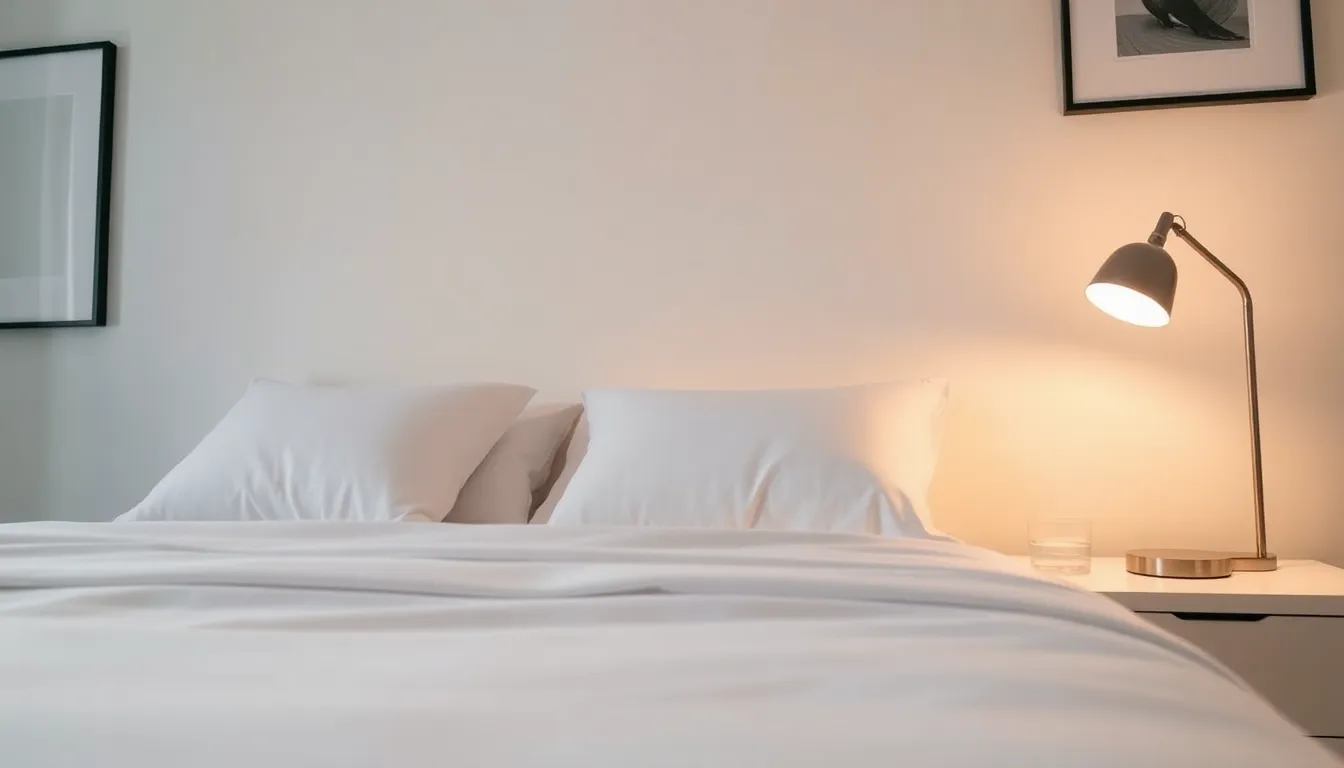Imagine waking up after a full night’s sleep, feeling like a boulder has landed on your head. Not everyone gets the chance to sleep peacefully, and for some, the morning’s chill is met with a throbbing headache instead of the warm embrace of their pillows. Welcome to the world of sleep headaches. It sounds serious, and, for many, it is. But fret not. This article unpacks what these pesky headaches are, their causes, and what can be done to find relief. So grab your favorite cup of joe and let’s jump into this neck-craning topic.
Table of Contents
ToggleWhat Are Sleep Headaches?

Sleep headaches, often referred to as sleep-related headaches, occur when a person sneaks off to dreamland only to be jolted awake by an intense headache. These headaches are usually tied to sleep patterns rather than a lack of rest. They can catch one off-guard, making it difficult to start the day on the right foot.
These headaches can occur during deep sleep or can even result from early morning wake-ups. They are not just an annoying way to ruin your morning, these headaches can indicate underlying issues that are worth exploring.
What’s important is to distinguish sleep headaches from other types of headaches. Identifying characteristics like timing, duration, and accompanying symptoms can help in recognizing their nature.
Common Types of Sleep Headaches
Understanding the variations in sleep headaches can lead to better management.
- Hypnic Headaches: Often dubbed as ‘alarm-clock headaches,’ these typically occur during sleep rather than upon waking. They tend to strike in the early morning, waking an individual abruptly, and usually last around 15 to 60 minutes.
- Tension-Type Headaches: These can emerge due to muscle tension and stress. If someone experiences tension in their neck or shoulders during sleep, this type is likely the culprit.
- Cluster Headaches: While rare, these headaches are excruciatingly painful and can occur in cyclical patterns, often interrupting sleep multiple times a night.
- Migrainous Headaches: Sometimes, migraines can disrupt sleep cycles, creating a pattern where the headache strikes upon waking or during sleep disturbances.
Causes of Sleep Headaches
Several triggers can contribute to sleep headaches.
- Sleep Disorders: Conditions such as sleep apnea can lead to disrupted sleeping patterns, prompting headaches.
- Poor Sleep Hygiene: Irregular sleep schedules, uncomfortable mattresses, or unwelcome noise can affect the quality of sleep, eventually causing morning headaches.
- Excessive Alcohol Consumption: Drinking before bed can fragment sleep leading to waking headaches.
- Medication Overuse: Frequent use of headache medications can inadvertently lead to rebound headaches.
- Stress and Anxiety: Emotional and mental distress can manifest as physical tension, stirring up headaches during sleep.
Symptoms and Diagnosis
Recognizing the symptoms is the first step towards finding a remedy. Symptoms of sleep headaches may include:
- Throbbing or Pulsating Pain: Usually a characteristic feature.
- Nausea: Some sufferers might also feel nauseous, especially if headaches are severe.
- Sensitivity to Light or Sound: Many find that bright lights or loud noises exacerbate their pain.
- Duration: Often lasting from 30 minutes to several hours, depending on the type.
Diagnosing sleep headaches typically involves a conversation with a healthcare professional, who may perform a physical examination and discuss symptoms in detail. Sometimes, a sleep study might be recommended to pinpoint the cause.
Treatment Options for Sleep Headaches
Fortunately, there are several avenues for treatment.
- Medications: Over-the-counter pain relievers like ibuprofen or acetaminophen can offer quick relief for headaches. But, it’s essential to consult a doctor about chronic use.
- Preventive Treatments: If headaches are frequent, a doctor might suggest preventive medications. These could range from antidepressants to blood pressure medications.
- Cognitive Behavioral Therapy (CBT): This approach can aid in managing stress and anxiety, potentially decreasing headache frequency.
- Lifestyle Changes: Establishing a regular sleep schedule, limiting alcohol consumption, and incorporating relaxation techniques may also help.
Preventive Measures
Prevention can greatly reduce the likelihood of sleep headaches. Here are some effective measures:
- Maintain a Healthy Sleep Routine: Going to bed and waking up at the same time helps regulate your body’s internal clock.
- Optimize Sleep Environment: Keep the bedroom dark, quiet, and at a comfortable temperature.
- Stay Hydrated: Drink enough water throughout the day. Dehydration can trigger headaches.
- Limit Caffeine and Alcohol: Especially in the hours leading up to bedtime.
When to Seek Medical Attention
While headaches are common, some situations warrant a visit to a healthcare professional. If someone experiences:
- Severe headaches that worsen over time,
- Changes in headache patterns,
- Headaches followed by symptoms like confusion or difficulty speaking,
- Headaches that interrupt sleep frequently,
then it’s best to seek medical advice. Timely intervention can help in identifying and treating underlying medical conditions effectively.



